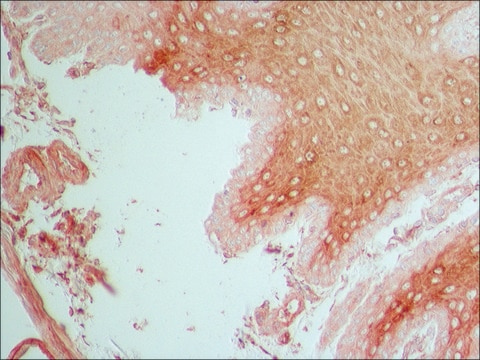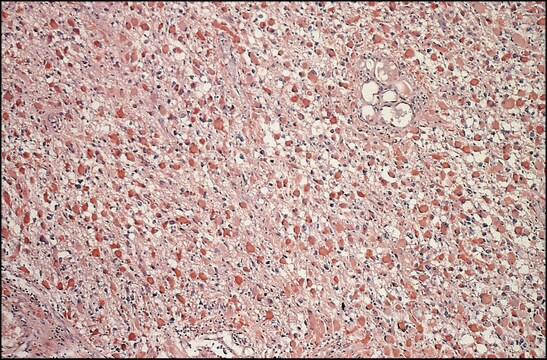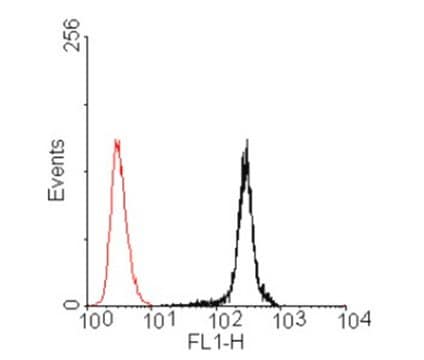05-1134
Anti-Fibroblast Growth Factor Receptor 1 Antibody, clone VBS1
clone VBS1, from mouse
Synonym(s):
CD331 antigen, Fms-like tyrosine kinase 2, basic fibroblast growth factor receptor 1, fibroblast growth factor receptor 1, fms-related tyrosine kinase 2, heparin-binding growth factor receptor, hydroxyaryl-protein kinase, soluble FGFR1 variant 1, soluble
About This Item
Recommended Products
biological source
mouse
Quality Level
antibody form
purified immunoglobulin
antibody product type
primary antibodies
clone
VBS1, monoclonal
species reactivity
human, bovine, rat, chicken, mouse
technique(s)
ELISA: suitable
immunohistochemistry: suitable (paraffin)
immunoprecipitation (IP): suitable
western blot: suitable
isotype
IgM
NCBI accession no.
UniProt accession no.
shipped in
wet ice
target post-translational modification
unmodified
Gene Information
human ... FGF22(27006)
General description
Specificity
Immunogen
Application
Signaling
Growth Factors & Receptors
Quality
Western Blotting Analysis: 0.78 µg/mL of this antibody detected Fibroblast Growth Factor Receptor 1 in 10 µg of NIH/3T3 cell lysate.
Target description
Linkage
Physical form
Storage and Stability
Analysis Note
NIH/3T3 cell lysate
Other Notes
Disclaimer
Not finding the right product?
Try our Product Selector Tool.
recommended
Storage Class Code
12 - Non Combustible Liquids
WGK
WGK 2
Flash Point(F)
Not applicable
Flash Point(C)
Not applicable
Certificates of Analysis (COA)
Search for Certificates of Analysis (COA) by entering the products Lot/Batch Number. Lot and Batch Numbers can be found on a product’s label following the words ‘Lot’ or ‘Batch’.
Already Own This Product?
Find documentation for the products that you have recently purchased in the Document Library.
Our team of scientists has experience in all areas of research including Life Science, Material Science, Chemical Synthesis, Chromatography, Analytical and many others.
Contact Technical Service








